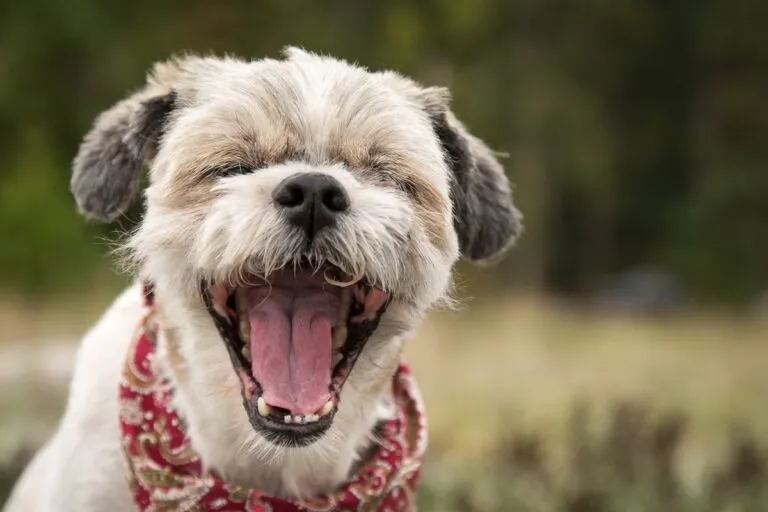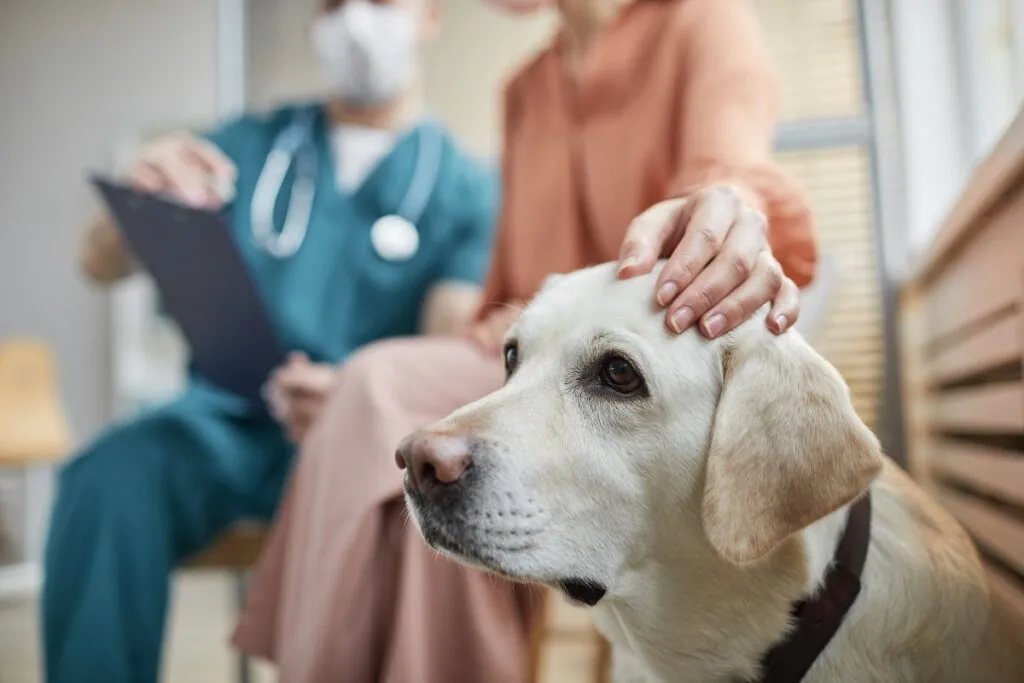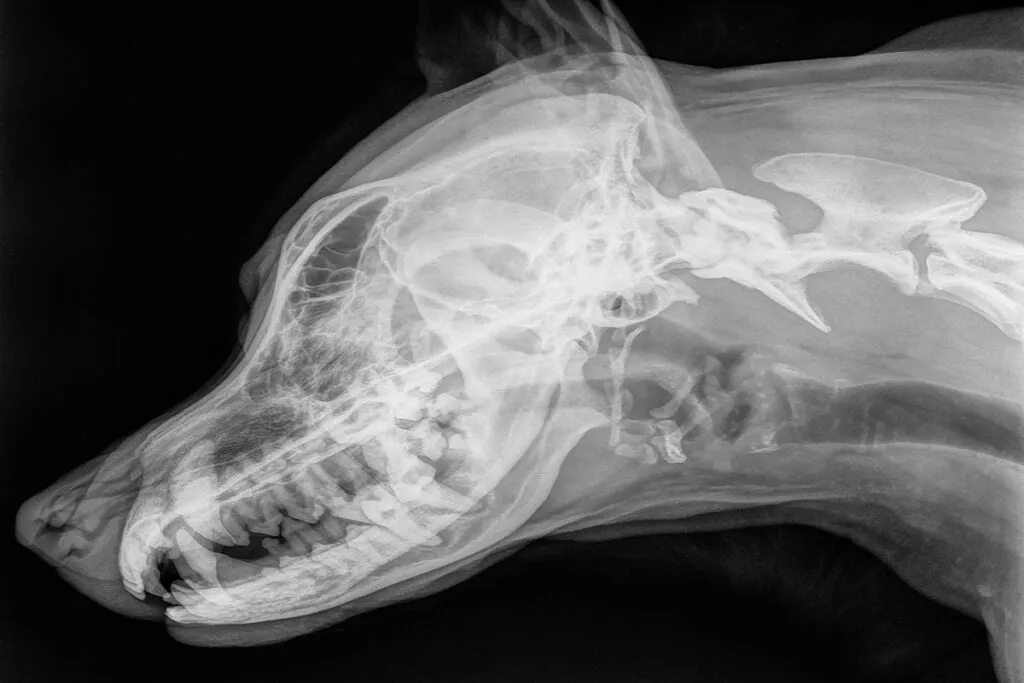Numerous triggers can lead to the phenomenon of reverse sneezing in dogs. The most common causes include:
External Influences:
- the collar is too tight
- the dog pulls strongly on the lead
- it inhales chemical substances (e.g., smoke, cleaning products, perfumes, deodorants)
Health Reasons:
- Inflammations of the nose (rhinitis), throat (pharyngitis), or tonsils (tonsillitis)
- Foreign bodies (e.g., awn or grass blades)
Diagnosis at the Vet’s
To determine the cause of frequent reverse sneezing in your dog, you should visit a vet.
After detailed questioning of the owner (anamnesis) and a clinical general examination, the vet can perform a special examination of the upper airways.
A helpful tool for detecting foreign bodies or tumours in the nose is rhinoscopy. The vet examines the dog’s upper airways using a rhinoscope – a small endoscope with a camera.
If desired, the vet can also take a tissue sample with a biopsy forceps or make a swab to culture, in order to identify infectious agents (e.g., bacteria or fungi).


